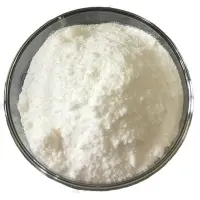Cell metal: special molecular switch can effectively reverse chronic inflammation and aging
-
Last Update: 2020-02-11
-
Source: Internet
-
Author: User
Search more information of high quality chemicals, good prices and reliable suppliers, visit
www.echemi.com
February 11, 2020 / Bio Valley bio on / -- when the body's immune system is overloaded by aging, stress or environmental toxins, it will lead to chronic inflammation, leading to a variety of devastating diseases, including Alzheimer's disease, Parkinson's disease, diabetes and cancer; recently, an international journal published in cell metabolism In the previous report, scientists from the University of California identified a special molecular switch, which may help control the "immune machine" responsible for chronic inflammation of the body The relevant research results may help researchers develop new therapies to inhibit or even reverse a variety of age-related human diseases Source: Danica Chen, researcher of cc0 public domain, said that our laboratory is very interested in studying the reversible mechanism of aging Previously, we found that aging stem cells It can rejuvenate the vitality of youth; now we need to ask how much aging can be reversed Now through the observation of physiological conditions of the body, researchers have achieved this, such as inflammation and insulin tolerance, which are directly related to age-related degradation and disease occurrence In this study, the researchers found that by removing a small amount of molecular substances in the process of deacetylation, the accumulation of NLRP3 inflammatory bodies can be essentially turned off, which are responsible for sensing the potential threat of the body and initiating inflammatory reactions The over activation of NLRP3 inflammatory bodies is directly related to the occurrence of a variety of chronic diseases, including multiple sclerosis, cancer, diabetes and dementia The results show that drugs targeting deacetylation or closing NLRP3 inflammatory bodies can help inhibit or treat a variety of diseases and age-related degenerative diseases This acetylation may act as a switch, so when acetylation occurs, the inflammatory bodies are activated, and when deacetylation occurs, the function of the inflammatory bodies is turned off, said Chen, the researcher After studying the mice and macrophages, the researchers found that the special protein named sirt2 is mainly responsible for the deacetylation of NLRP3 inflammatory bodies The mice with gene mutation to inhibit sirt2 production showed more inflammatory symptoms than normal mice at the age of two, and these mice also showed higher insulin tolerance, which is often the same as type 2 mice Diabetes is directly related to metabolic syndrome The researchers then studied older mice whose immune systems were damaged by radiation, and blood stem cells that produced acetylated or deacetylated NLRP3 inflammatory bodies After recombination, the mice whose inflammatory bodies were deacetylated or shut down showed the improvement of insulin tolerance six weeks later, which suggested that shutting down the immune system "machine" could help effectively reverse the progress of metabolic diseases The results of this study are of great significance for the treatment of major chronic human diseases In the past year, there have been many promising clinical trials of Alzheimer's disease All ended in failure One possible explanation is that patients started treatment too late, and the disease has reached the point of irreversible Therefore, researchers believe that they need to conduct more in-depth research to understand whether the diseases related to aging can be reversed At the same time, based on the relevant research results, it is also expected to help researchers develop treatment for the elderly New treatment of related diseases Original source: Ming He, Hou Hsien Chiang, Hanzhi Luo, et al An acquisition switch of the NLRP3 infrared regulations aging associated chronic inflammation and insulin resistance, cell metabolism (2020) Doi: 10.1016/j.cmet.2020.01.009
This article is an English version of an article which is originally in the Chinese language on echemi.com and is provided for information purposes only.
This website makes no representation or warranty of any kind, either expressed or implied, as to the accuracy, completeness ownership or reliability of
the article or any translations thereof. If you have any concerns or complaints relating to the article, please send an email, providing a detailed
description of the concern or complaint, to
service@echemi.com. A staff member will contact you within 5 working days. Once verified, infringing content
will be removed immediately.







